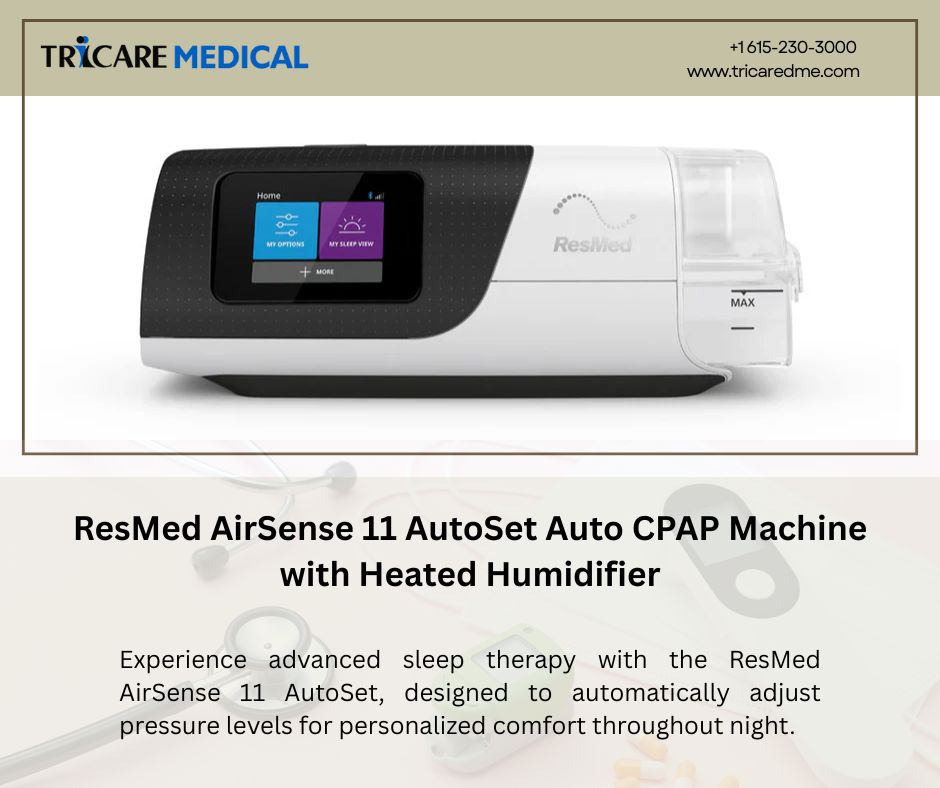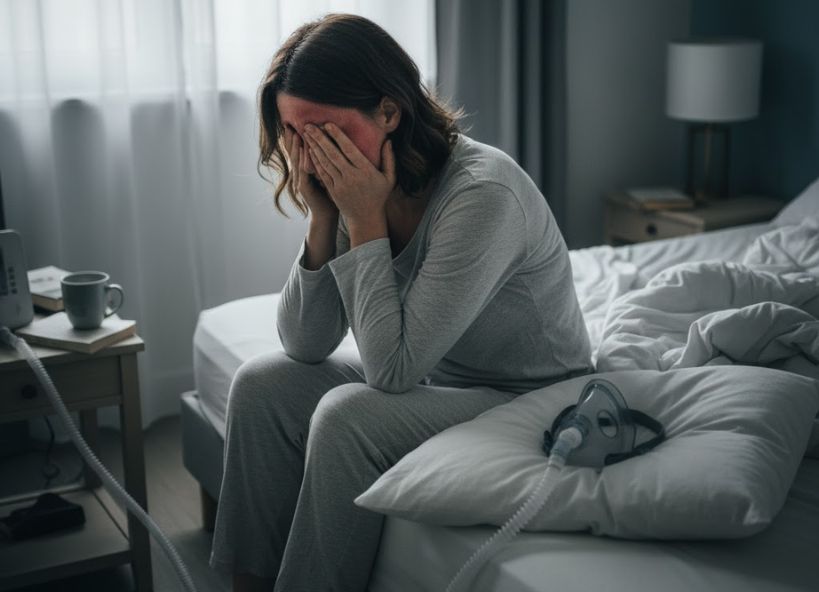Why You Might Be Tired Even After Using Your CPAP
- 5 min reading time
Feeling tired despite faithfully using your CPAP machine is more common than many realize. While CPAP therapy is the gold standard for treating obstructive sleep apnea, a variety of factors can keep you from feeling refreshed. Here’s an in-depth look at why you might still be tired, what could be going wrong, and practical strategies to help you regain your energy and better sleep quality.
Understanding CPAP and Residual Sleepiness
CPAP (Continuous Positive Airway Pressure) works by keeping your airway open with a steady stream of air, preventing the pauses in breathing that cause sleep apnea. However, up to 55% of users report persistent daytime tiredness even after consistent CPAP use, a condition often termed CPAP-resistant syndrome or true residual sleepiness.
This means that although the mechanical issue of airway collapse is treated, the brain and body may still need time—or additional support—to recover from long-term sleep deprivation and disrupted sleep cycles.
1. Your Body Is Still Adjusting
When starting CPAP therapy, it can take weeks or even months to feel truly rested. During this time, your body is relearning what uninterrupted sleep feels like. Early side effects, such as dry mouth, bloating, or discomfort from the mask, can actually cause more awakenings and make you feel worse before things improve.
Just as someone recovering from years of poor sleep doesn’t heal overnight, your body must catch up on “sleep debt” and recalibrate its circadian rhythms.
2. The Mask Fit May Be Off
A poorly fitted CPAP mask is one of the top reasons for continued tiredness. If the mask leaks or feels uncomfortable, it interrupts sleep and reduces therapy effectiveness. Even minor air leaks can compromise pressure levels and cause fragmented rest.
To fix this:
Try adjusting the straps for a snug but not tight fit.
Experiment with different mask styles — nasal pillows, full-face, or nasal masks.
Use mask liners to reduce friction and pressure on sensitive skin.
3. Incorrect CPAP Pressure Settings
CPAP pressure that is too low fails to keep your airway open, while pressure that is too high can cause discomfort, air swallowing, or aerophagia. Both scenarios may leave you waking up exhausted.
A repeat CPAP titration study or a machine with auto-adjusting pressure (APAP) may be needed to fine-tune your therapy. Many find relief once their pressure is recalibrated to their real-world sleep patterns.
4. You Might Be Removing the Mask During Sleep
Removing your mask unconsciously during sleep is quite common for new CPAP users. If the device is off for long stretches, it obviously can’t provide benefits, leaving you tired the next day.
Try using a chin strap, mask reminder alarm, or CPAP-friendly pillow to make the experience more comfortable and reduce disruption.
5. Poor Sleep Hygiene or Circadian Rhythm Issues
Even perfect CPAP use can’t fix other causes of sleepiness like irregular sleep schedules, nighttime screen exposure, or caffeine late in the day. Some patients also have circadian rhythm misalignment, meaning their internal body clock is out of sync with their sleep-wake cycle.
To reinforce better sleep hygiene:
Maintain consistent bed and wake times.
Limit blue light and stimulants before bed.
Keep your sleeping environment dark and cool.
6. Other Sleep Disorders or Medical Conditions
Sometimes, sleep apnea isn’t the only issue. Conditions like restless legs syndrome, periodic limb movement disorder, depression, thyroid disease, and chronic fatigue syndrome can cause persistent tiredness even with ideal CPAP use.
A follow-up sleep study or consultation with a sleep specialist can help uncover whether another condition is at play.
7. Lingering Sleep Debt from Chronic Apnea
People living with untreated sleep apnea for years often have massive sleep debt—essentially, prolonged exhaustion that doesn’t disappear immediately once therapy begins. Studies show it can take several months for cognitive function, mood, and energy levels to stabilize even with consistent CPAP use.
The key here is patience. Continued adherence typically leads to cumulative improvements in alertness and overall well-being over time
8. CPAP-Resistant Syndrome (True Residual Sleepiness)
In some cases, despite perfect compliance and machine efficiency, people continue to feel excessively sleepy during the day. This is known as true residual sleepiness or CPAP-resistant syndrome.
Researchers believe it may result from persistent brain changes due to prior sleep deprivation or inflammation. Medications such as modafinil or armodafinil are sometimes prescribed to help manage this condition under medical supervision.
9. Psychological Factors and Adjustment Period
Using a CPAP machine can feel strange or even claustrophobic at first. The noise of the machine and the physical sensation of airflow can trigger anxiety or discomfort, leading to disrupted rest. Mindfulness techniques and desensitization exercises can help you adapt more smoothly to the therapy.
Read more:
Portable Cpap Machine For Sleep Apnea | Resmed CPAP Mask
When to Seek Professional Help
If you’ve been using your CPAP consistently for at least three months and still feel persistently tired, it’s time to check in with your sleep specialist. Bring your device data to appointments so clinicians can:
Assess leak rates, usage time, and apnea-hypopnea index (AHI) trends.
Adjust pressure settings if necessary.
Rule out other comorbid sleep disorders or metabolic issues.
Final Thoughts
Feeling tired after using CPAP doesn’t necessarily mean your treatment is failing—it often means your body, mind, or setup still needs fine-tuning. Ensuring proper equipment fit, correct pressure, good sleep hygiene, and follow-up with your healthcare provider can turn things around. With consistent use and careful monitoring, most users eventually achieve the deep, restorative sleep they’ve been missing for years.



